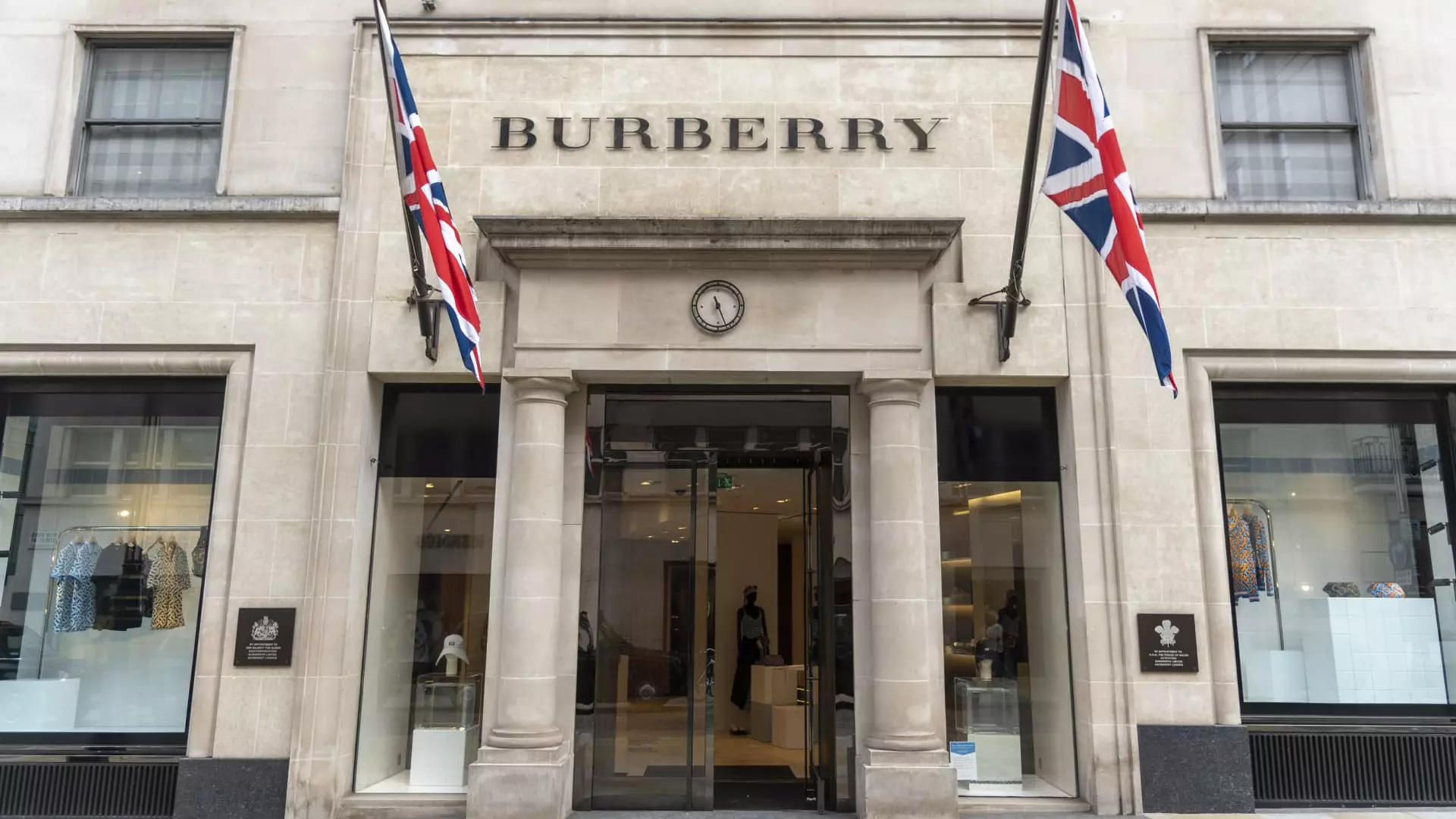In a surprising turn of events, Burberry Group, the British luxury fashion house, has dropped out of the U.K.’s FTSE 100 stock market index, marking the end of a 15-year tenure in the blue-chip index. This move comes amidst a series of management changes and plummeting sales, signaling significant challenges for the 168-year-old retailer.
Burberry, founded in Basingstoke, England, in 1856, initially gained international recognition for its iconic trench coats, handbags, and signature check print. The brand’s entry into the FTSE 100 in 2009 was seen as a testament to its enduring appeal and resilience, even during the global financial crisis. However, the adoption of Burberry’s trademark pattern by the British working class in the 1990s and 2000s marked a shift in the brand’s image, leading to challenges in maintaining its high-end status.
Despite attempts by successive CEOs to elevate Burberry’s image and regain its upscale positioning, the market has remained unconvinced. The company’s recent appointment of Joshua Schulman as CEO hints at a potential shift in strategy towards a “British Coach” approach, focusing on cost reduction, outlet expansion, and engagement with off-price retailers. This new direction aims to revitalize Burberry’s financial performance and market standing, following a string of profit warnings and declining sales.
Burberry’s struggles reflect broader challenges in the luxury sector, characterized by a sustained downturn in consumer spending, inflationary pressures, and economic uncertainty. The impact of Chinese luxury consumption on global brands has been particularly pronounced, with companies like Hugo Boss and Kering reporting sales declines in key markets. However, certain players in the ultraluxe segment, such as Richemont and Hermes, have managed to navigate the crisis successfully, underscoring the cyclical nature of the industry.
Outlook and Potential Remediation
Analysts and investors are closely monitoring Burberry’s next steps, with Schulman expected to outline his strategic vision in November. The company’s forthcoming half-year financial results will provide further insights into its performance trajectory and prospects for recovery. As shareholders anticipate potential leadership changes and operational restructuring, the path to regaining a foothold in the FTSE 100 remains uncertain. Nonetheless, industry experts believe that Burberry’s early recognition of underlying issues positions it favorably to address challenges and emerge stronger in the competitive luxury landscape.
Burberry’s exit from the FTSE 100 reflects a critical juncture in its storied history, highlighting the need for proactive measures and innovative strategies to navigate evolving market dynamics. As the company charts a new course under fresh leadership, the spotlight is on its ability to adapt, innovate, and reclaim its status as a global fashion icon.

